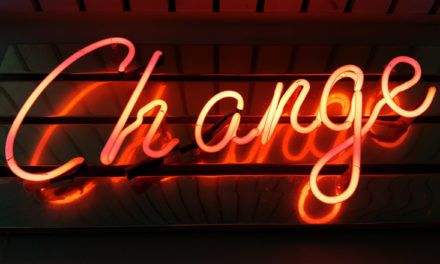Tidal Adaptations
This month’s whakataukī (proverb) is: “Kua huri te tai o kūare, koia ka mimiti noa.” (“The tide has turned, and now ebbs away”). The meaning here should be obvious: change has come, there is no turning back. Trying to stem the tide is a pointless, fruitless exercise—there may be no fish to be gained from the shore, but there is food; it just requires a different approach to find it, prepare it, and… to get used to the different taste and texture. It requires change, and change is plain hard work.
Adapting to change is a learning process. It requires a willingness to forego long held assumptions and responses, and submit to the implications of the new information we are now confronted with. In the midst of a prolonged season of shifts, such as we are experiencing in this first half of the twenty-first century, such a willingness can be tapped out. There are too few emotional reserves to invest in the work required to adapt. It can be too hard. It is much easier to insist on holding on to our current knowledge, our long-held way of doing things.
New learning in adulthood often requires us to unlearn before we can relearn what we need for the new contexts we find ourselves in.
Trouble is, they are no longer fit for purpose and it can do more harm than good to hold fast. Our current context is an amplified version of the situation Spencer Johnson wrote about in “Who Moved My Cheese“. We can too easily be the allegorical mouse refusing to budge from the place our food used to be rather than searching out new stores of abundance.
Our nourishment, and the other resources we need to cope with a changed tide will not be found by holding on to the past. Back in 1970 Alvin Toffler recognised this when he noted in his book Future Shock (a prescient title if there ever was one),
By instructing students how to learn, unlearn and relearn, a powerful new dimension can be added to education…Tomorrow’s illiterate will not be the man who can’t read; he will be the man who has not learned how to learn. (p414)
New learning in adulthood often requires us to unlearn before we can relearn what we need for the new contexts we find ourselves in. It is hard work because transformation can be a painful process. Transformative development is not something that comes from the precept-upon-precept, line-upon-line, repetitious type of learning (cf. Isaiah 28:10, 13). While standard education of the building blocks kind adds to our knowledge, the catalyst for truly transformative development that matures us in more radical ways (think: metanoia/repentance) is more like rupturing. A ripping down (unlearning) in order to rebuild (relearning) much like how we develop our muscles via weight training, where micro tearing encourages the building of more muscle fibre, strengthening the body part. As the old proverb says, “no pain, no gain”.
And so we stand on the beach watching the tide disappear, longing for the way things used to be. We judge our current circumstance on the basis of prior learning. I see this response in some Christian commentary on current affairs such as Tim Wilson’s concerns shared in a recent Maxim article. Tim is director of the Maxim Insititute, an Aotearoa New Zealand think-tank, who contrasts two determinations by the New Zealand Teacher’s Disciplinary Tribunal, with the more severe judgment falling against a Christian maths teacher who refused to acknowledge a gender-transitioning person’s new name (and, by implication, identity). What Tim and many Christians seem to be surprised by is just how seriously our society values individual identity. An attack on one’s convictions (by the imposition of another’s convictions, or a judgement based on those convictions) has become morally reprehensible. This is a major shift in our ‘social contract’ and a relatively new challenge to our old ways of doing evangelism and “being a witness”. The tide has turned, but it is not necessarily an obstacle to the gospel. Christ’s eternal message has long outlasted many such changes, and flourished in new ways with every ebb tide. We need to adjust the fact that Christianity has lost its position of privilege in Western society as moral arbiter (or dictator). But in the annals of human history this privilege was an unusual bubble. Our faith thrives best when it is compassionately lived out in stark contrast to the morality of its context, and then engages that context with loving sensitivity to assist with the gospel’s reception.
Missions lost its privilege as the spiritual messenger of an empire.
So too has missions lost its privilege as the spiritual messenger of an empire that is now thoroughly past. Evangelical missionaries may have been a thorn in the side of imperial authorities, but they still enjoyed the privileges that imperial power afforded. Following the rapid decline of European colonialism after World War II, and subsequent post-colonial critiques that have built momentum ever since, the global missions community has been very slow to adapt to the new world that has emerged.
In his 13 July 2023 substack post, my friend and former colleague Ted Esler, director of Missio Nexus, the US missionary alliance, recognises that change has come and notes 5 significant marker points that will have bearing on missions over the next 10 years. His perspective is somewhat unique to the USA, but I was fascinated that he ranked “mutuality” second in his list. In my opinion he rightly notes that “It may introduce a paradigmatic shift in our overall understanding of missions”, but he remains cautious. His concerns have some validity, but I think they might be a little premature because a full understanding of mutuality for missions has yet to emerge. We are still figuring out how to find and use those tasty morsels in our ebb tide environment. At the moment we are still in the unlearning phase, the place of deconstruction, a time of necessary critical analysis (or as Ted has experienced it, a “negative polemic”). Mutuality will emerge as the result of a period of serious self-reflection in the light of our global pluralistic context and missions will be the stronger for it. It will be a humbler, more sensitive, and more cooperative missiology; but to suggest, as Ted does, that this means a diminished Christology is unwarranted. Mutuality demands respect for all, but this does not imply that salvation is available to all outside of Jesus. There is only one way (John 14:6), but that way is found by invitation rooted in mutual relationship, not by the imposition of doctrines or moral mandates born of a particular context.
In my presentation to the NZ Association of Christian Schools last month I noted the diminishing influence in society being felt by many Christians, mostly of European descent (aka white Pākehā). I said,
…if you come from a well-to-do Pākehā background you will be better positioned than most, genetically and environmentally, to benefit from our current society. This is what we call privilege… at least it is until society shifts, and such a (position) no longer aligns with the socio-economic environment or context, and you start to feel the loss of privilege. We are in one of those destabilising periods right now, and it can feel very threatening. For those conditioned to maximise benefit from the status quo, social change in favour of some marginalised may feel like it’s threatening your very identity, presenting what is known as an ‘existential crisis’. As an anonymous internet commentator has wryly said concerning justice impacting society, “when you are accustomed to privilege, equality feels like oppression”.
For the sake of the mission of God in the shifting tides of our local and global contexts, may we embrace the pain of our unlearning so that we might grow back stronger, relearning together, in order to #stayonmission.
Arohanui ki a koutou e haere ana ki te ao (love to you all as you go into the world),
Jay







